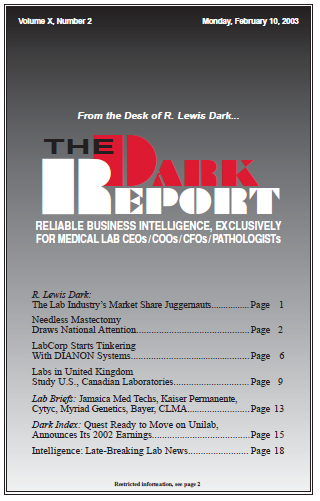MEDICAL TECHNOLOGISTS IN JAMAICA STAGE WALK-OUT IN JANUARY LABORATORY TECHS ARE NOT KNOWN to be a radical component of the labor movement. But that doesn’t seem to be the case in Jamaica, where more than 80 of that country’s medical technologists walked off their jobs twice in January in protests against pay inequities. The strike […]
To access this post, you must purchase The Dark Report.


